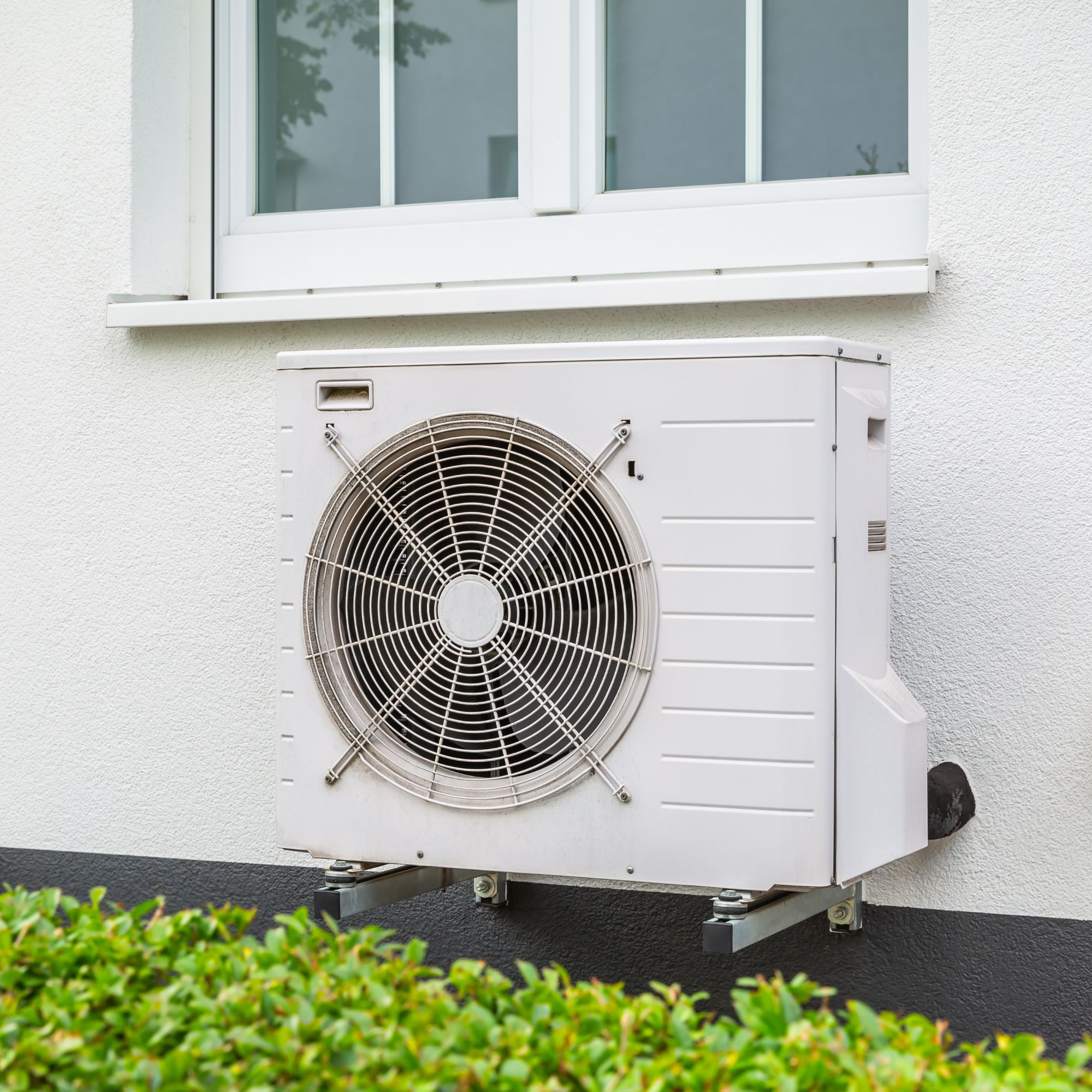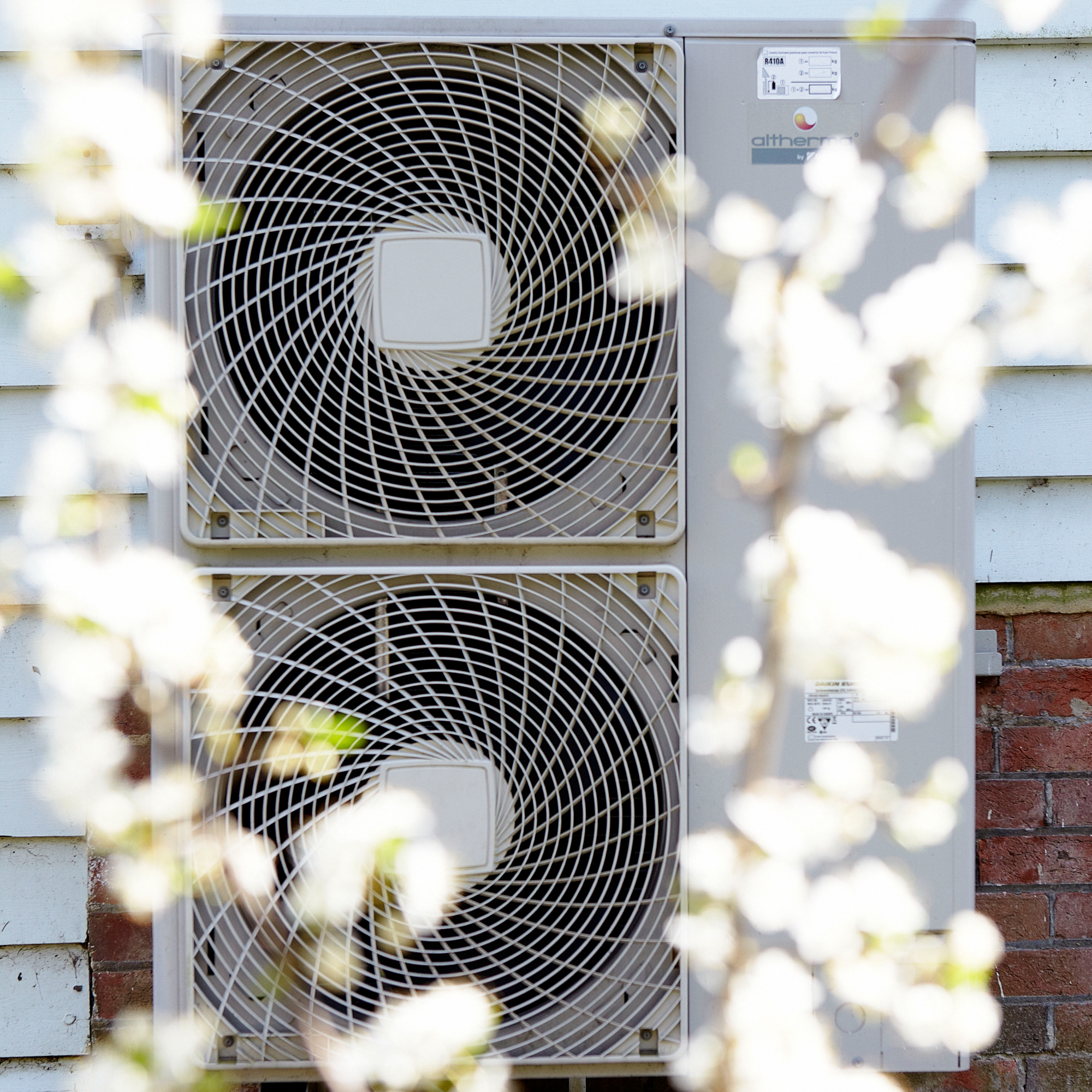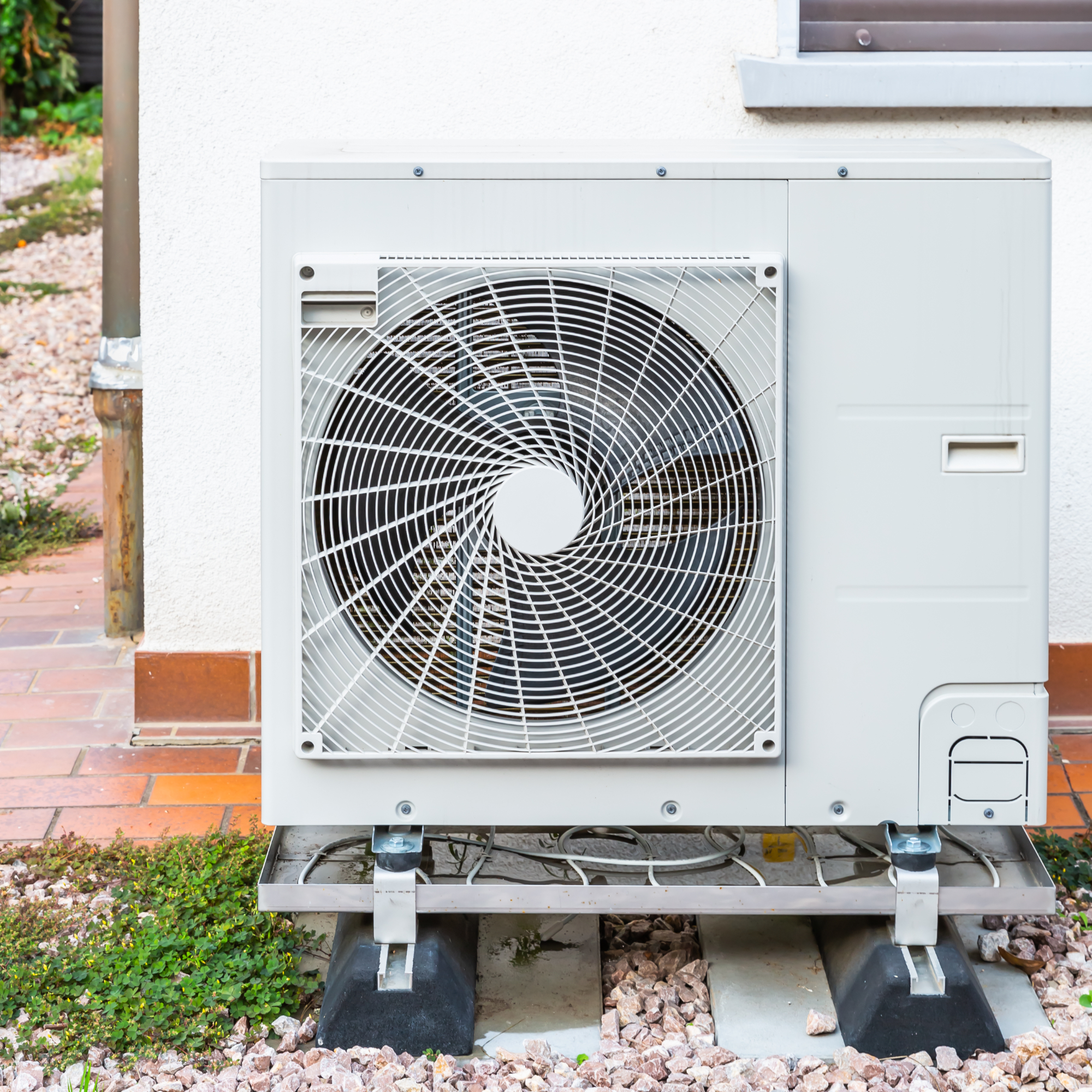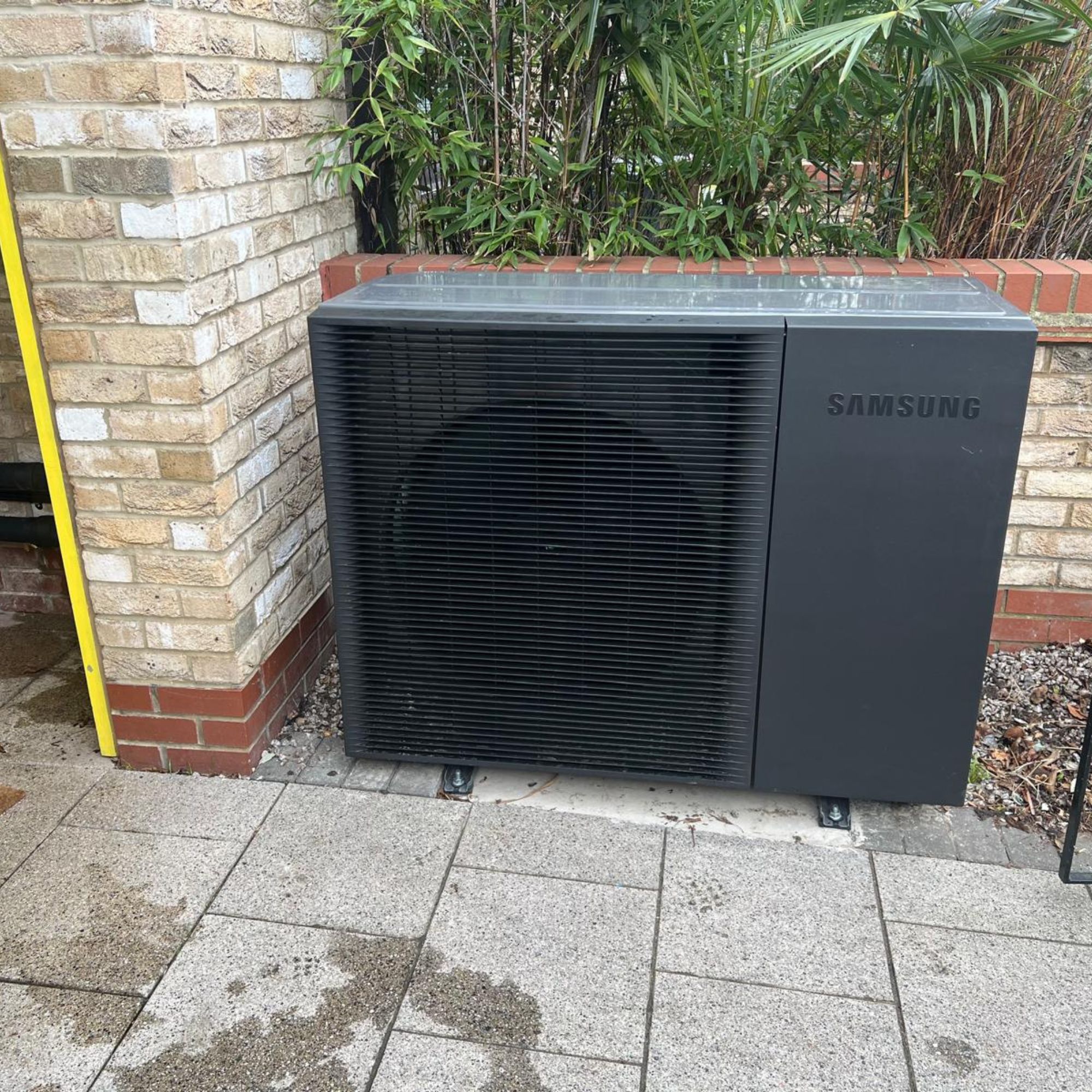
In the drive to find alternative fuel sources to heat the home, it might be that you’ve already considered a heat pump to replace your conventional gas-fired boiler. But do you need planning permission to install a heat pump or can you go ahead without?
Powered by electricity, heat pumps work in a similar way to fridges – just in reverse. Depending on whether you install an air or ground-source appliance, your heat pump will extract warmth from the air or ground and concentrate it into a usable, higher temperature warmth that can be used for your home’s heating or hot water.
While this piece of renewable kit can typically be installed under Permitted Development rights – which means you don’t need to apply for formal planning consent – there are still various rules your installation should follow.
Here, we take a closer look at the guidelines you should adhere to to ensure your installation falls under the PD umbrella, as well as exploring some of the most common questions around heat pumps and planning.
Do I need planning permission to install a heat pump?

The short answer to this question is no – you don't usually need planning permission for a heat pump. But as with anything to do with planning, there are always exceptions and caveats to bear in mind before charging ahead and installing your new tech.
Permitted Development (PD) rights were established to allow homeowners to make changes to their property without the need to apply for formal planning permission, thus making the process for various home improvements simpler and more streamlined.
'PD rights allow you to install either a single ground source or single air source heat pump without having to submit a planning application – however, this is caveated by your property’s location and character,' says Collette Raine, architect and creative manager at PAD Studio.
'Listed buildings and properties in designated areas [eg conservation areas, Areas of Outstanding Natural Beauty etc] will need to apply for permission due to their sensitive nature.'
According to planning policy, there are parameters that every PD installation of a heat pump should fall into. 'The unit can be no larger than 0.6m3, it must be used solely for heating and hot water purposes and it can be no taller than 3m,' says Richard Gill, a director at Paul Archer Design.
In addition, the unit must comply with the Microgeneration Certification Scheme Planning Standards MCS020 and it should be located at least one metre from the boundary of your home – though we’ll cover this in more detail later.
If you’re in doubt, you can check the Planning Portal for more details or speak to an MCS-certified installer for the most up-to-date advice.
How far does a heat pump have to be from the boundary?

Current guidelines stipulate that your air source heat pump should be positioned at least one metre from the boundary of your property. 'Though, we are expecting this rule to be removed very shortly,' says Ali Cox, senior sales project manager at Kinectid.
It was announced by the government in November 2024 that the one metre rule would be abolished early this year to make heat pump installations easier. 'This news will be very welcome in the industry,' says Ali. Though, as of February 2025, the one metre rule is still in place.
It’s also worth noting that the guidelines in England, Wales and Scotland are slightly different. For instance, in Wales the unit needs to be more than 3m from the boundary. Always check current planning rules with your local authority to be sure.
'Regulations are less specific on ground source heat pumps, as they’re generally located within your property,'says Collette from PAD Studio. 'But the amount of excavation work required is worth considering with the site and area you have, as there are Permitted Development rules against how close you can excavate near boundaries.'
Again, if in doubt, double check with your local authority.
Can a neighbour object about me installing a heat pump?

If your heat pump ticks all the boxes in terms of noise output (42 decibels or less), distance from the boundary etc, your neighbours should not be affected by the installation. But as always, there are some potential caveats to this.
'Environmental health regulations mean a neighbour can, of course, complain if they feel your heat pump is disturbing the enjoyment of their own home. This could lead to a potential enforcement letter from the council if they deem the complaint valid,' says Rob Elkins, creative director at Artel31.
However, providing your system is well-placed, well-maintained and has been installed by a certified professional, this scenario is highly unlikely to arise. It’s also worth bearing in mind that if your neighbour’s issue is focused on the low humming noise emitted by your heat pump, you might be able to install an acoustic enclosure to help minimise the sound.

Where should you not install a heat pump?
Typically, most heat pumps – both air and ground source – are installed in the back garden of the property in a discreet location where they don’t stand out. 'Having said that, we have installed some in the front garden where this is not possible,' says Ali from Kinectid. 'We check with local planning authorities to ensure this is compliant, as some boroughs have stricter rules than others.'
It’s probably fair to say that appearance-wise, a heat pump isn’t going to do much to add to the aesthetic appeal of your home – especially if you live in a traditional, cottage-style build or a rural property. Therefore, positioning the appliance in a discreet, out of the way location is probably the best way to avoid drawing attention to it.
If you’re working with a professional designer on a bigger home improvement project, they might even be able to design a stylish enclosure that keeps the heat pump neatly tucked out of view.
'From an environmental health perspective, despite becoming much quieter recently, heat pumps still hum when running – especially in cold weather when they need to work harder,' says Rob from Artel31. 'As such, if you’re siting a GSHP unit internally make sure it’s located away from bedroom walls and try to lobby the plant space.'
FAQs
Are there noise regulations for heat pumps?
42 decibels (dB) is widely accepted as the maximum noise output allowed for your heat pump installation to fall within the parameters laid out by Permitted Development. However, depending on the environment in which the heat pump is installed and the potential number of reflective surfaces around it (which will be greater in urban areas), the picture becomes a little more complex.
'Manufacturers’ data is predominantly quoted ‘free field’ without reflective surfaces that can add as much as 3dB each,' says Rob from Artel31.
So, if you’re concerned that the humming noise emitted by your heat pump will become an issue for you or your neighbours, take action to minimise the likelihood of this happening. For instance, an acoustic enclosure could be a great help in this scenario.
What if I do need to apply for planning permission?
For whatever reason, if you do end up needing to apply for planning permission for your heat pump, it’s worth getting your neighbours on side before they receive formal notice of your plans from the council.
In many cases, a friendly conversation and – perhaps – a bottle of wine early on in your project can work wonders in paving the way for a smooth road ahead.
If you are looking to make other significant alterations to your home, there are a wealth of other improvements you can make without needing planning permission.







